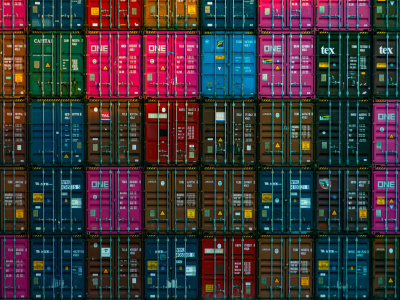
Where aid for trade meets responsible business conduct
I recently attended the 7th Aid for Trade Global Review, which took place in Geneva on 3-5 July. The theme was ʻsupporting economic diversification and empowerment through inclusive, sustainable development’. Naturally, the focus was on value chain development and how aid for trade affords the opportunity to millions of people, including the vulnerable, to lift themselves out of poverty. But how successful has it really been?
Significant resources, over $400 billion for almost 180,000 different projects since 2006, have been channeled to build trade capacity and infrastructure in developing countries to stimulate development. The European Union (EU) too is an important aid for trade partner and presented its progress in furthering this agenda. With everyone focusing on the ‘great’ work they have done, some important questions may have been missing from the discussions.
The EU is a significant aid for trade partner
The EU’s Aid for Trade (AfT) strategy was updated in 2017 to respond to the 2030 Agenda. It aims to improve complementarity between trade and development objectives.
With funding reaching €14.5 billion in 2017, the EU accounts for 31% of global AfT. What’s more, AfT from the EU is growing, recording an increase of 7.8% compared to 2016.
The idea is that more support for more enabling trade policies and enhancing productive capacities in partner countries can increase their participation in international trade and help move up the value chain, thus bringing about development. Moreover, social and environmental sustainability – not just economic – is at the heart of the AfT strategy.
A strong focus on responsible business conduct
As such, the AfT agenda is related to responsible business conduct (RBC) which entails compliance with laws, and respecting human rights and ensuring environmental protection.
Businesses may be aware of systemic issues in countries that they source from, such as child labour, but these are difficult to tackle by a single company. AfT can be a useful tool in such cases to accomplish actual changes on the ground in partner countries. Take for instance the European Partnership for Responsible Minerals (EPRM). It is a multi-stakeholder initiative between companies, civil society organisations and governments to improve socio-economic conditions for miners and local communities surrounding the mines in conflict and high risk areas. Among other things, it seeks to do this by implementing projects that help artisanal and small-scale mines to produce responsibly. These projects are partly funded by the EU.
But what can we say about actual progress?
Some projects introduced under AfT include market access schemes through voluntary standards and certification. A few were mentioned in Geneva. These market-based initiatives aim to increase the participation of smallholder producers by linking them to larger markets while also ensuring that their products have a sustainability label.
While such initiatives can be valuable, how inclusive are they? Evidence shows that they may benefit only a minority of the intended beneficiaries, usually those with means for better organisation given their capital, education, proximity to urban areas etc. A vast majority of smallholders are not well organised to take advantage of these schemes. Moreover, certification schemes may also have unintended consequences. While minimum prices and premium are beneficial for producers, it may also crowd out or displace local production, especially food crops, in favour of exports. Nevertheless, these initiatives can be beneficial in connecting some producers to global markets.
In some cases smallholder producers, especially in risky areas like artisanal and small-scale mining, face the risk of being left out of the supply chain as larger processors perceive it a reputational risk to source raw material from them. International guidelines however recommend that this be the step of last resort, and they should first be engaged to mitigate the risks. Again, the reach of voluntary standards may be limited. But efforts are also being made to make market-based initiatives more inclusive. For instance, the Code of Risk mitigation for Artisanal and small-scale miners engaging in Formal Trade (CRAFT) simplifies the due diligence process in the sector by focusing on mitigation of prominent risks which in turn can facilitate their entry into formal markets.
And now?
AfT is a broader approach, encompassing aspects of RBC in as much as it focuses on the aspect of social and environmental sustainability in supply chains. However, when looking at increasing the income of smallholder producers, instead of making markets work for the poor through market-based initiatives, should we perhaps first understand better how the poor make markets work for them? Smallholder producers cooperate through informal arrangements, and compete with each other. The problem is that these arrangements are not always formally recognised. It will require innovative approaches that give agency to the very smallholders, that national policymakers, as well as development partners, aim to help, to lift them out of poverty.
These are the kinds of considerations that would help bring forth a genuine discussion about where aid for trade can come in to bring about responsible business and promote inclusive and sustainable development.




